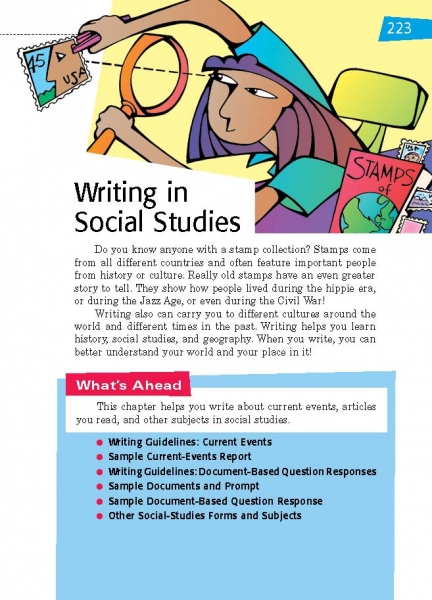Page 223 from

Start-Up Activity
Explain to students that social studies covers a lot of territory, including current events, history, politics, sociology, culture, economics, and on and on. As such, there is a lot of writing associated with it, including documents, books, articles, news stories, letters, and reports. In social studies class, your students read a lot of these different texts and are assigned to write about them in different ways, too. This chapter provides guidelines for two important forms of social studies-related writing: current-events reports and document-based question responses. Ask for a volunteer to read the introduction.
Note: Social studies and/or English teachers can implement these guidelines.
Think About It
“Real learning consists of The Self and The Others flowing into each other.”
—Ken Macrorie

Start-Up Activity
Explain to students that social studies covers a lot of territory, including current events, history, politics, sociology, culture, economics, and on and on. As such, there is a lot of writing associated with it, including documents, books, articles, news stories, letters, and reports. In social studies class, your students read a lot of these different texts and are assigned to write about them in different ways, too. This chapter provides guidelines for two important forms of social studies-related writing: current-events reports and document-based question responses. Ask for a volunteer to read the introduction.
Note: Social studies and/or English teachers can implement these guidelines.
Think About It
“Real learning consists of The Self and The Others flowing into each other.”
—Ken Macrorie



